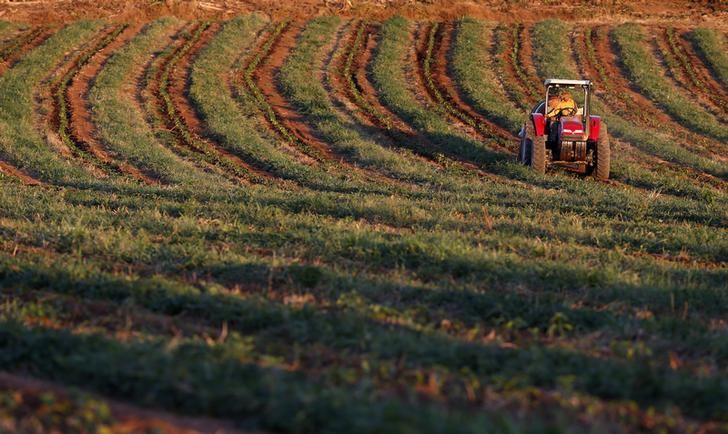(Bloomberg) -- Terms of Trade is a daily newsletter that untangles a world embroiled in trade wars. Sign up here.
For some European farmers, the historic free-trade deal reached with South America could spell more bad news.
Growers’ groups fear the accord struck last week with the Mercosur group of countries could prompt more cheap sugar to end up in the European Union, a region suffering from too much supply. Beef, ethanol and poultry industries will also be among the hardest hit by more imports at lower prices, EU farm lobby Copa-Cogeca said. France’s biggest farmers union called for protests.
“The EU sugar sector is suffering through the worst crisis in living memory,” producer groups including the Confederation of European Beet Growers said in a statement. “The zero duty rate ensures that almost all of this sugar will enter the EU even when prices are low.”
Europe’s sugar industry is an example of how harmful too much supply can be. Prices slumped after the end of EU output quotas a couple of years ago added to a global surplus, prompting producers to shutter plants and cut jobs and farmers to reduce plantings. While the market is showing signs of tightening, the EU industry expects the tough environment to last a while yet.
Implementing the deal will take a few years, and there are quotas on volumes of agricultural products that will be imported tariff-free into the EU. Still, France’s government said it’s concerned about some elements of the accord, and can’t say if it will ratify the pact as it stands.
“The bottom line of the deal is that, although there won’t be probably a massive increase of volume of the imports, the reduction on import duties will make South American beef much more competitive with European beef, and that will probably push the price down for European farmers,” Chris Horseman, an analyst at IHS Markit Agribusiness Intelligence, said by phone.
There are also concerns that the EU will import more South American farm goods produced using certain products -- like some pesticides -- that are restricted in Europe. That could also give Mercosur nations a price advantage.
“If we are really committed to EU high standards and sustainability, why would we accept that we import products that do not fulfill the same requirements that our European farmers have to fulfill?” Pekka Pesonen, secretary general of Copa-Cogeca, said by phone.
Extra competition for EU products risks more of the region’s farmers going out of business, according to IHS’s Horseman. It could also prompt a further shift away from the European model of family farming toward bigger operations in order to compete, Pesonen said.
Still, there’s reason to cheer in other parts of the EU’s food and drink industry. For example, wine and spirit exports to South America should be among the winners from the removal of duties. Dairy shipments to the region should also benefit, even though quotas should have been higher, Copa-Cogeca said.
